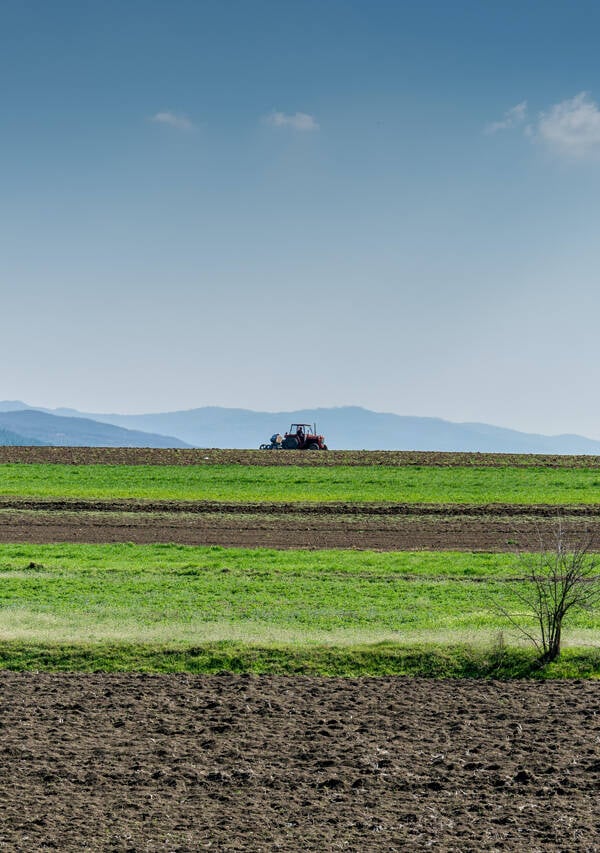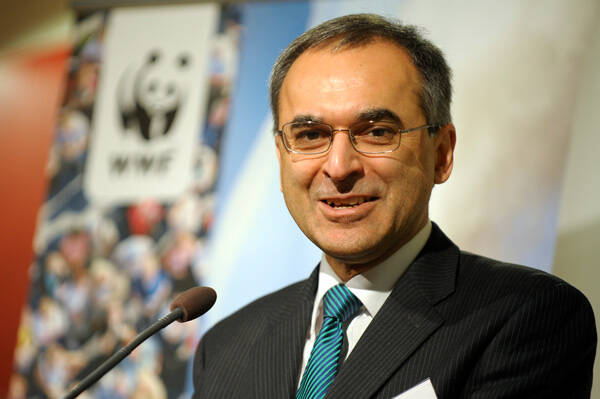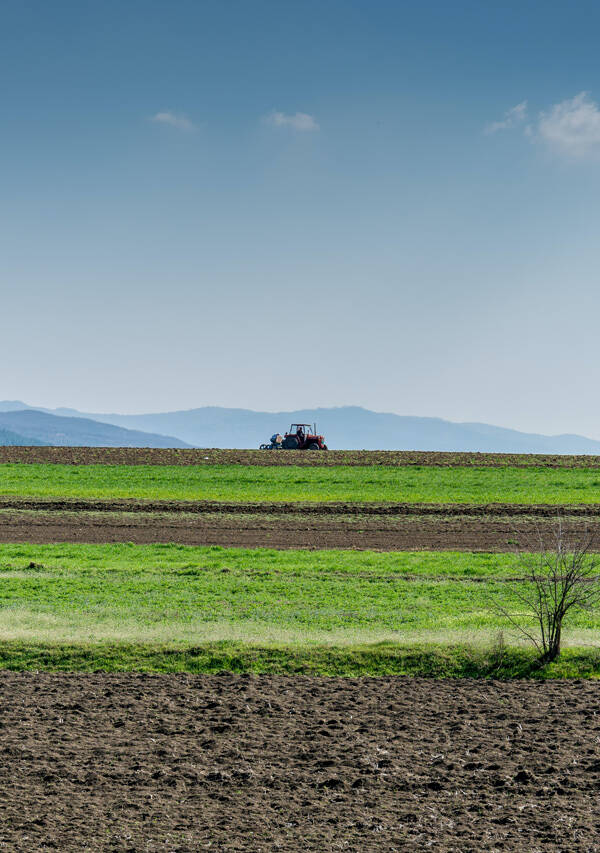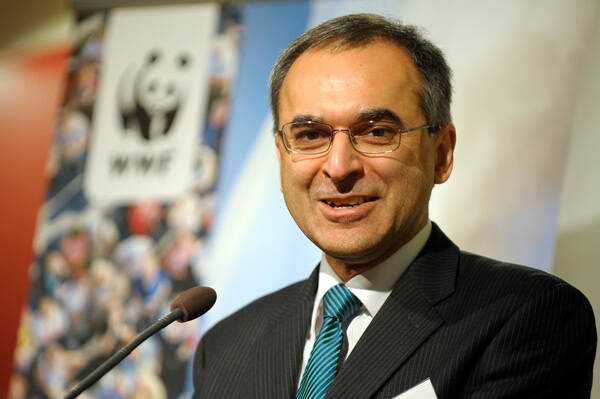


Looking out for the little guy
When it comes to our food system, existing frameworks that attempt to capture the food systems as a whole consistently expose one problem: the significance of smallholder farms is undervalued. “There isn’t a single occupation that can match the number of people employed in smallholder farms,” Sukhdev says. The challenge lies in making those jobs better, more productive, and less risky. “If we get it right we can solve hunger, poverty, and employment all at the same time. Why is that a bad thing? Let’s focus policy on solving these problems.” One answer could lie in the adoption of natural farming methods, to once again focus on biology, instead of the modern approach of chemistry. Natural farming has seen higher yields with less risk. Fixing the problem starts with looking at the whole picture. “If we can diagnose our food system honestly, we can heal it.”
Four capitals
“Human wellbeing, seen from a lens of economics, has four components,” Sukhdev says. Four different kinds of capital that allow us to thrive. There is the financial capital which we are all accustomed to, that of money and markets. Natural capital is the value that nature provides to us. Human capital is an economic metaphor for the skills we possess that allow us to earn income, and finally social capital is the value of relationships, both formal in the form of laws, and informal like mutual trust and respect. “And yet, all our systems, thinking and behaviour are fixated on the mesmerizing magic of markets. We seem to be unable to understand that it’s not only the things that have a price that have a value. Our economic thinking needs to change to a much more holistic view that incorporates all these different forms of value.”

The economic invisibility of nature
Basic economics teaches us about price and value. You pay a price to receive value. One of the major problems with our current agricultural system is that it receives incredible value from nature, without paying the price. Sukhdev: “The total value of pollination provided by bees for crops was estimated at 200 billion dollars, which is close to a tenth of the total value of agricultural crops. Who pays for that? Has a bee ever sent you an invoice? This is an example of the economic invisibility of nature.” We have to change our thinking to respect the things with enormous utilitarian value, like water and the other benefits of nature, and to not equate a high price with high value.

The Holocene strikes back
COVID-19 is a consequence of us not living in harmony with nature, according to Sukhdev. “We need to be responsible in how we interact with nature. Not destroy it, but preserve it, live within it. Not be a dominant force and stop trying to convert the holocene era into the anthropocene era.” Humanity should stop trying to be a geological force. The careful balance of nature, with predictable seasons and weather patterns, and powerful ability to bounce back from disturbances, is what allowed humanity to thrive in the first place. Perhaps the virus behind COVID-19 is part of nature’s defense mechanisms, a response to the disturbances caused by us humans? The current health crisis must be a moment of reflection and revaluation. Wherein we take a hard look at the economic and cultural habits that got us here, and take steps to change those into something better for us and the planet.

What is the food system missing?
In a webinar for the Financial Times, Sukhdev analyzed what’s missing in the food system. The industrial food system as we picture it, dominated by large tracts of farmland and combine harvesters is unmatched when it comes to producing calories, but falls regrettably short when it comes to nutrition. Sukhdev: “It’s not the volume of food that’s the issue, it is its distribution and quality and how we market health.” The way we got here is by setting the wrong goals. The way we measure the success of a food system is way too narrow. “We tend to think of per hectare productivity of single crops. That is completely insufficient.” The way forward is measuring externalities, both positive and negative. “You cannot manage what you do not measure.”


While most of the world seems to only now catching on to the shortcomings of our global food system, Pavan Sukhdev got in on the ground floor. The Indian environmental economist is currently serving his first term as president of the World Wildlife Fund International, which sees the way we currently produce our food as the single biggest threat to the wellbeing of the natural world. His vision at where we are and what still needs doing.
Jelle Steenbergen Xiao Er Kong
Environmental economist Pavan Sukhdev’s vision for fixing the food system
Has a bee ever sent you an invoice?
© E.Scagnetti WWF


interview
4 min
has a bee ever sent you an invoice?



Looking out for the little guy
When it comes to our food system, existing frameworks that attempt to capture the food systems as a whole consistently expose one problem: the significance of smallholder farms is undervalued. “There isn’t a single occupation that can match the number of people employed in smallholder farms,” Sukhdev says. The challenge lies in making those jobs better, more productive, and less risky. “If we get it right we can solve hunger, poverty, and employment all at the same time. Why is that a bad thing? Let’s focus policy on solving these problems.” One answer could lie in the adoption of natural farming methods, to once again focus on biology, instead of the modern approach of chemistry. Natural farming has seen higher yields with less risk. Fixing the problem starts with looking at the whole picture. “If we can diagnose our food system honestly, we can heal it.”
Four capitals
“Human wellbeing, seen from a lens of economics, has four components,” Sukhdev says. Four different kinds of capital that allow us to thrive. There is the financial capital which we are all accustomed to, that of money and markets. Natural capital is the value that nature provides to us. Human capital is an economic metaphor for the skills we possess that allow us to earn income, and finally social capital is the value of relationships, both formal in the form of laws, and informal like mutual trust and respect. “And yet, all our systems, thinking and behaviour are fixated on the mesmerizing magic of markets. We seem to be unable to understand that it’s not only the things that have a price that have a value. Our economic thinking needs to change to a much more holistic view that incorporates all these different forms of value.”

The economic invisibility of nature
Basic economics teaches us about price and value. You pay a price to receive value. One of the major problems with our current agricultural system is that it receives incredible value from nature, without paying the price. Sukhdev: “The total value of pollination provided by bees for crops was estimated at 200 billion dollars, which is close to a tenth of the total value of agricultural crops. Who pays for that? Has a bee ever sent you an invoice? This is an example of the economic invisibility of nature.” We have to change our thinking to respect the things with enormous utilitarian value, like water and the other benefits of nature, and to not equate a high price with high value.


The Holocene strikes back
COVID-19 is a consequence of us not living in harmony with nature, according to Sukhdev. “We need to be responsible in how we interact with nature. Not destroy it, but preserve it, live within it. Not be a dominant force and stop trying to convert the holocene era into the anthropocene era.” Humanity should stop trying to be a geological force. The careful balance of nature, with predictable seasons and weather patterns, and powerful ability to bounce back from disturbances, is what allowed humanity to thrive in the first place. Perhaps the virus behind COVID-19 is part of nature’s defense mechanisms, a response to the disturbances caused by us humans? The current health crisis must be a moment of reflection and revaluation. Wherein we take a hard look at the economic and cultural habits that got us here, and take steps to change those into something better for us and the planet.

What is the food system missing?
In a webinar for the Financial Times, Sukhdev analyzed what’s missing in the food system. The industrial food system as we picture it, dominated by large tracts of farmland and combine harvesters is unmatched when it comes to producing calories, but falls regrettably short when it comes to nutrition. Sukhdev: “It’s not the volume of food that’s the issue, it is its distribution and quality and how we market health.” The way we got here is by setting the wrong goals. The way we measure the success of a food system is way too narrow. “We tend to think of per hectare productivity of single crops. That is completely insufficient.” The way forward is measuring externalities, both positive and negative. “You cannot manage what you do not measure.”


© E.Scagnetti WWF

While most of the world seems to only now catching on to the shortcomings of our global food system, Pavan Sukhdev got in on the ground floor. The Indian environmental economist is currently serving his first term as president of the World Wildlife Fund International, which sees the way we currently produce our food as the single biggest threat to the wellbeing of the natural world. His vision at where we are and what still needs doing.
Jelle Steenbergen Xiao Er Kong
Environmental economist Pavan Sukhdev’s vision for fixing the food system
Has a bee ever sent you an invoice?
4 min









